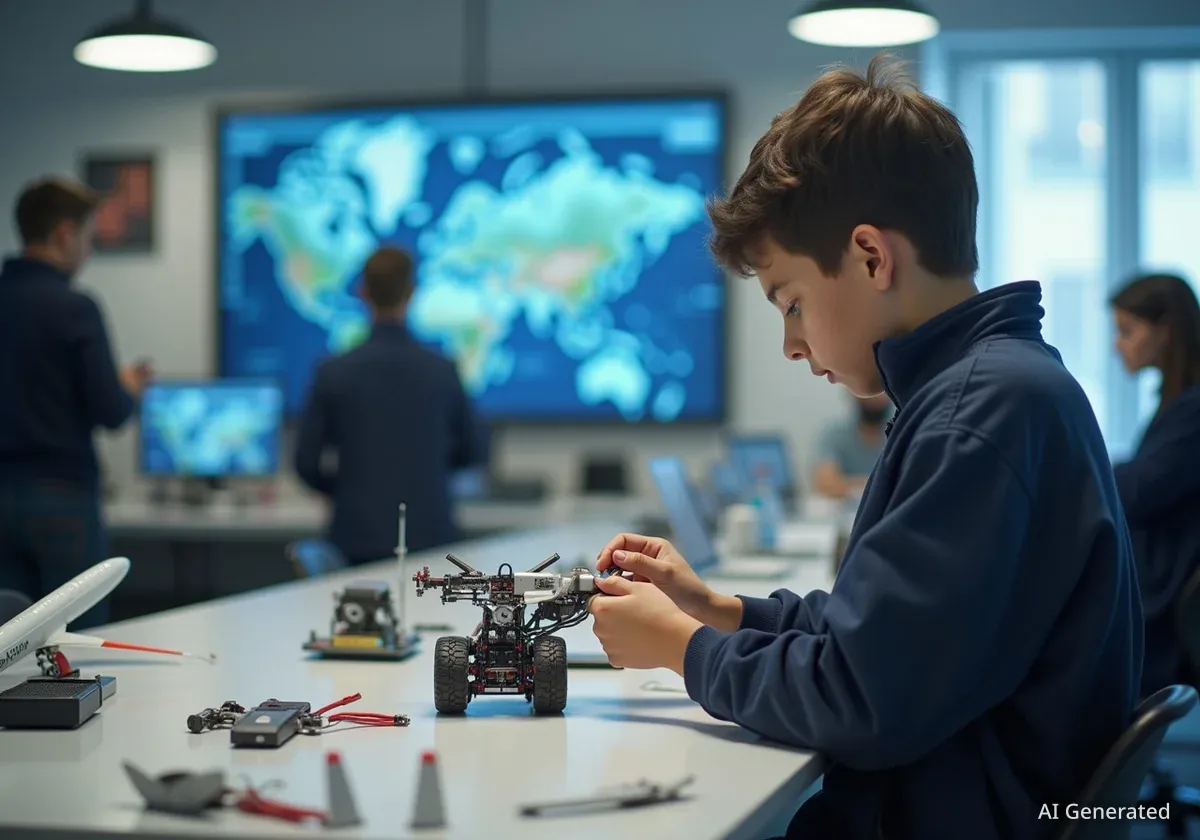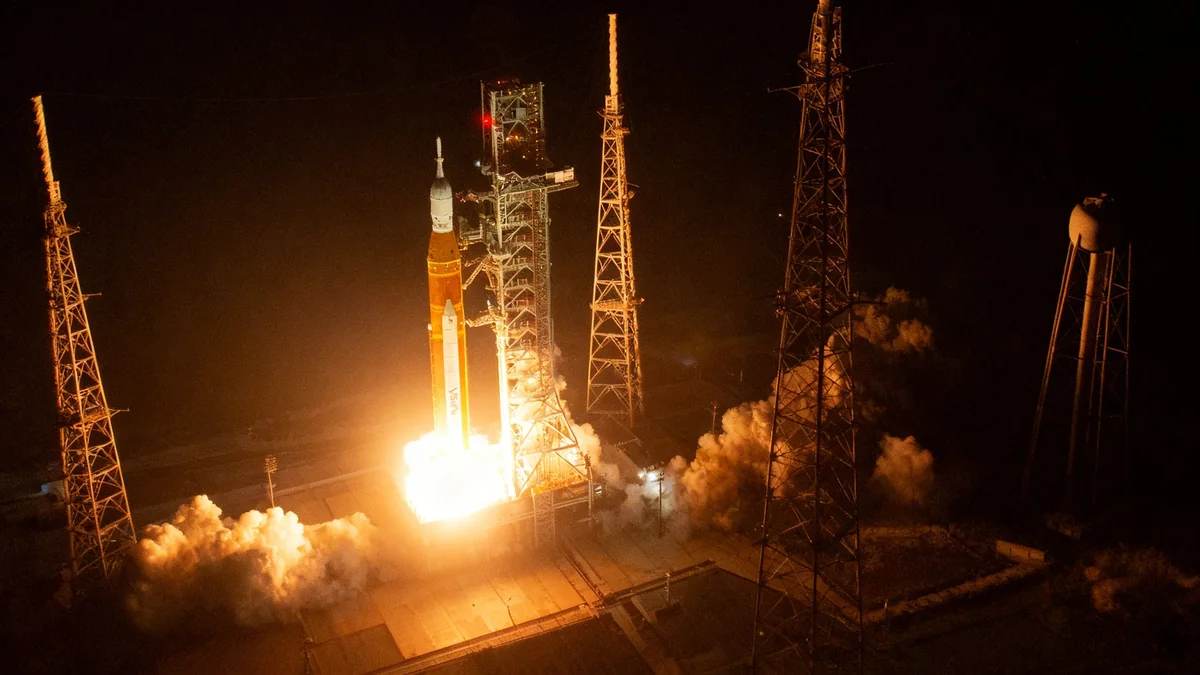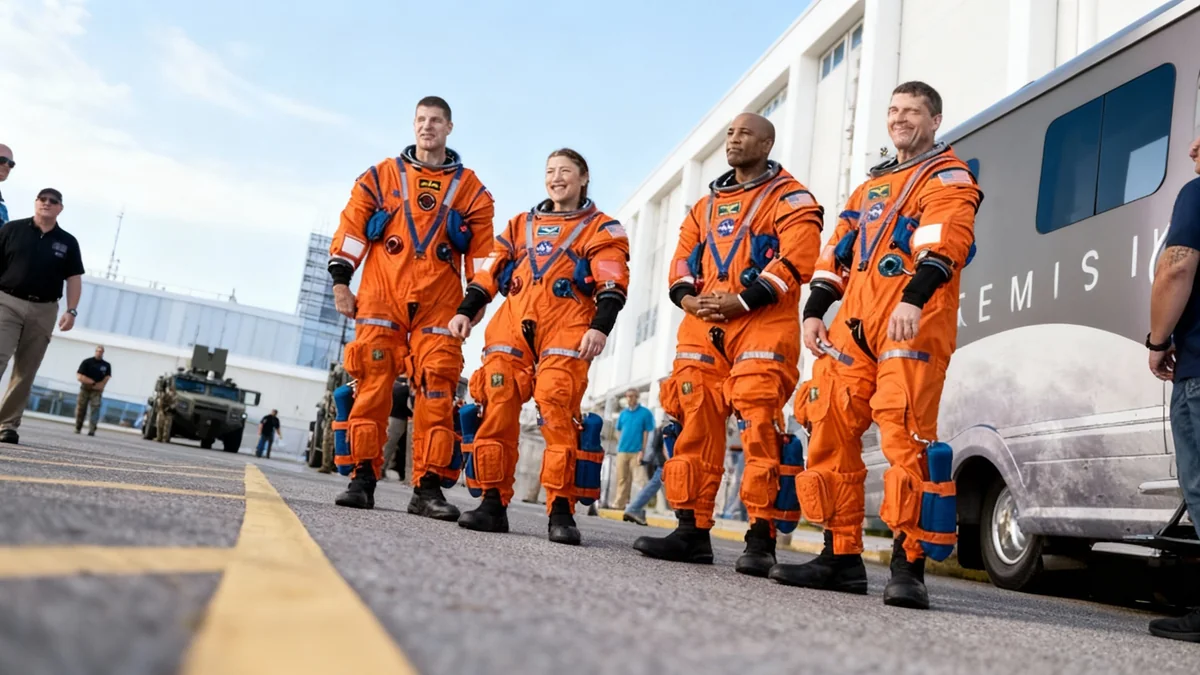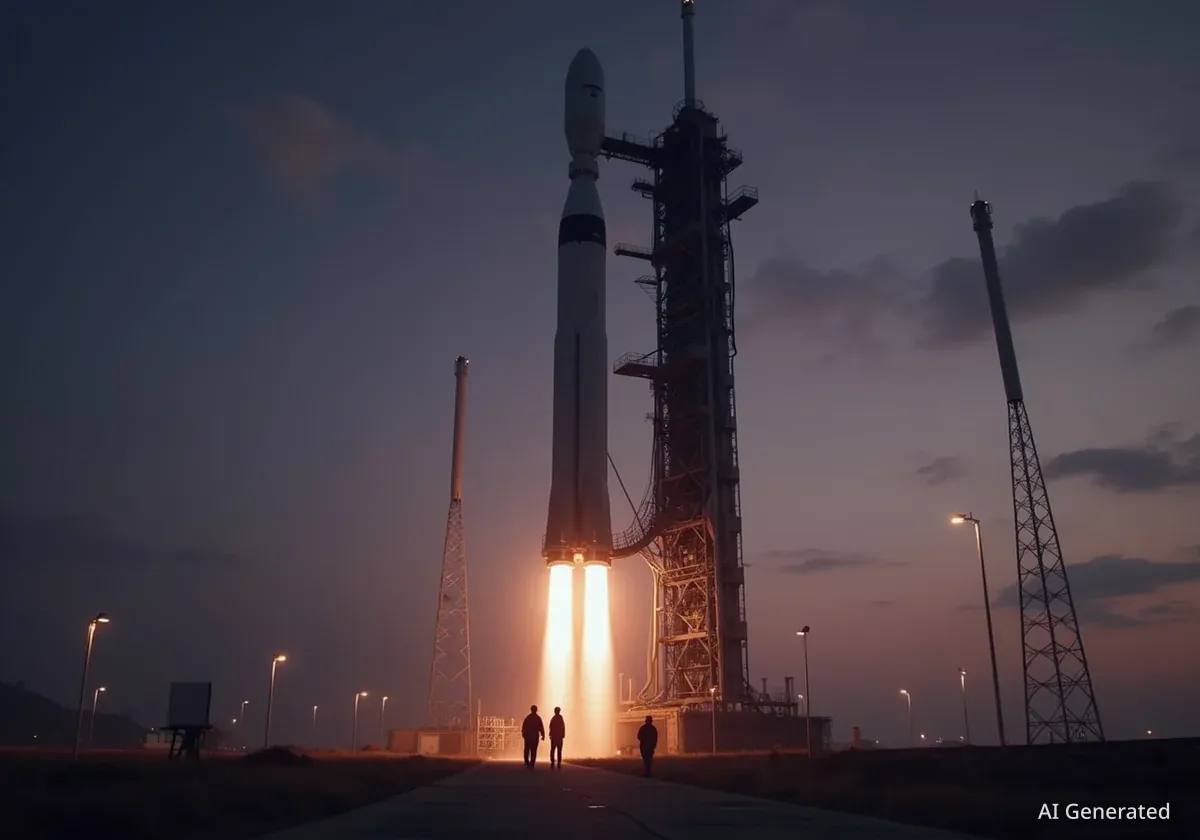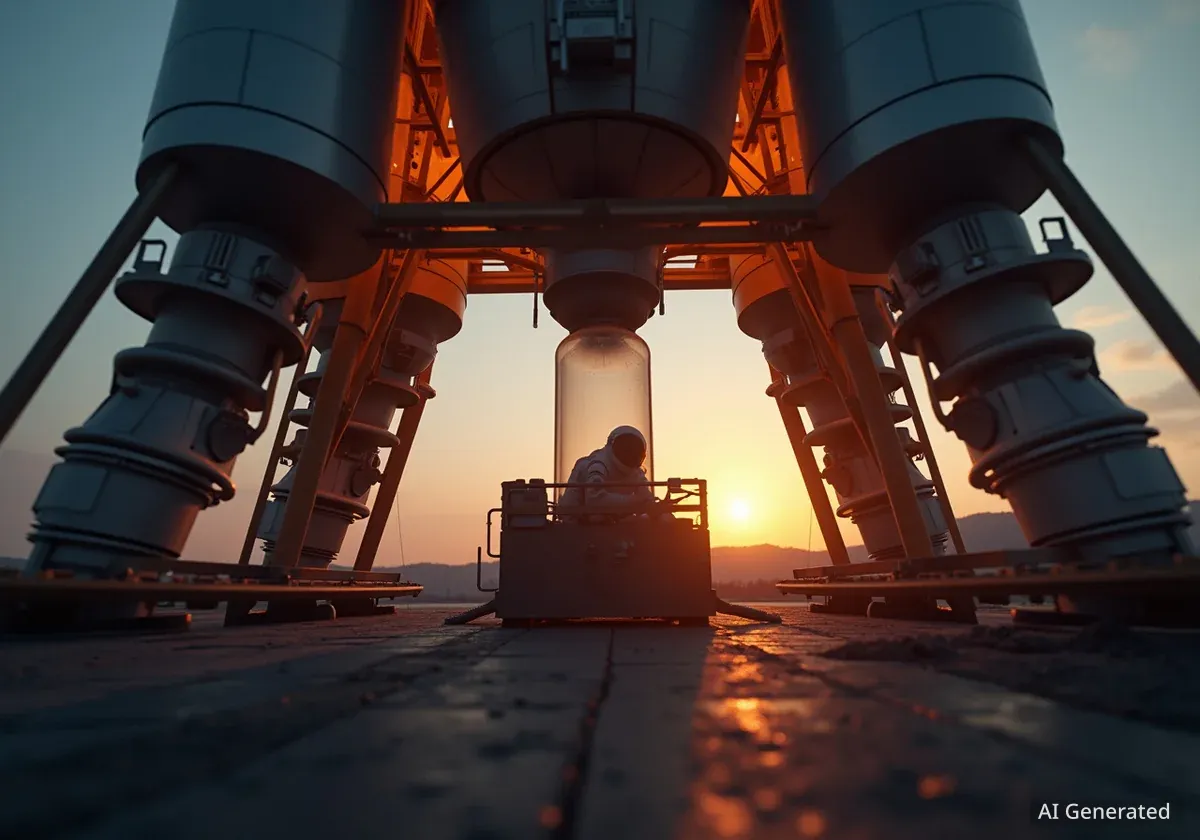The Air Zoo Aerospace and Science Center in Kalamazoo, Michigan, has been awarded an $819,200 grant from the state. The funding will support a new multi-year initiative called “Making Space in Michigan,” designed to prepare students for future careers in aerospace, robotics, and engineering.
The project, which will run through 2029, aims to strengthen Michigan's workforce in science, technology, engineering, arts, and mathematics (STEAM). It will introduce new exhibits, expand educational programs, and create community outreach opportunities.
Key Takeaways
- The Air Zoo received an $819,200 grant from the Michigan Department of Labor and Economic Opportunity (MI-LEO).
- The funding launches the “Making Space in Michigan” initiative, a long-term project focused on aerospace and robotics education.
- The program will include new permanent exhibits, hands-on learning, and resources for educators, running through 2029.
- The initiative aims to build a skilled STEAM workforce to support Michigan's growing aerospace industry.
State Funding to Boost Michigan's Aerospace Future
The significant financial award comes from the 2025 Community Museum Empowerment Grant program, administered by the Michigan Department of Labor and Economic Opportunity (MI-LEO). This program is highly selective, and the Air Zoo was one of just seven institutions across the state chosen for its potential to deliver impactful community programming.
This grant provides the necessary resources for the Air Zoo to launch its ambitious “Making Space in Michigan” project. The core objective is to create a direct pipeline of talent for the state's high-demand technology sectors, particularly in aerospace and advanced manufacturing.
A Selective Award
The MI-LEO Community Museum Empowerment Grant program selected only seven institutions in Michigan for the 2025 cycle. The Air Zoo's successful application highlights its established role in science education and its compelling vision for workforce development.
Troy Thrash, President and CEO of the Air Zoo, expressed optimism about the project's timing and potential. He emphasized that the funding allows the museum to expand its mission in a meaningful way.
“All the stars just seemed to align – and all the right people are in place. This funding empowers us to expand our mission in an exciting new way, support educators, and help grow Michigan’s already strong aerospace industry for decades to come.”
Inside the 'Making Space in Michigan' Initiative
The “Making Space in Michigan” initiative is a comprehensive, multi-faceted program scheduled to unfold in phases until 2029. It is designed to engage learners of all ages, from elementary students to adults seeking new career paths. The project has already commenced, with each new phase promising new opportunities for public engagement.
Key Components of the Program
The initiative will focus on several key areas to achieve its goals:
- New Permanent Exhibits: The museum will develop and install new permanent aerospace exhibits and interactive installations to provide hands-on learning experiences.
- Expanded School Programming: The Air Zoo will enhance its educational offerings for schools and provide updated resources for teachers to integrate STEAM concepts into their curricula.
- Community and Mobile Outreach: To engage learners beyond the museum's physical location, the initiative includes mobile and community-based experiences, bringing science and technology directly to local communities.
- Career Pathway Development: The program will also create new professional roles within the Air Zoo, establishing clear career pathways in museum education and exhibit management.
What is STEAM?
STEAM is an educational approach that integrates Science, Technology, Engineering, Arts, and Mathematics. The goal is to foster critical thinking, problem-solving, and creativity, which are essential skills for the 21st-century workforce, especially in technical fields like aerospace and robotics.
A Collaborative Effort for Education
The Air Zoo is not undertaking this major project alone. The initiative is supported by additional funding from the Tyler-Little Family Foundation, a key partner in the museum's educational mission. This financial backing demonstrates a strong community investment in the region's future workforce.
Furthermore, the Air Zoo is collaborating with the American Institute of Aeronautics and Astronautics (AIAA) to leverage its programming expertise. This partnership ensures the educational content is current, accurate, and aligned with industry standards, providing students with relevant knowledge and skills.
The Air Zoo's Enduring Legacy
Located in Kalamazoo, the Air Zoo Aerospace and Science Center is a nationally recognized institution with a Smithsonian affiliation. It has a long history of making science and innovation accessible to the public. The museum serves as a major destination for families, students, and aviation enthusiasts from across the country.
The center's extensive collection is a significant draw. It is home to more than 100 rare and historically important aircraft. The collection also includes over 80,000 artifacts related to aerospace history and science. Visitors can also experience flight simulators, amusement-style rides, and a large-screen theater.
One of the Air Zoo's most notable features is its world-class restoration program. The program specializes in recovering and restoring World War II aircraft found in Lake Michigan, preserving critical pieces of aviation history for future generations.

